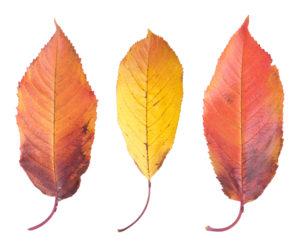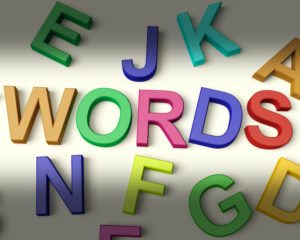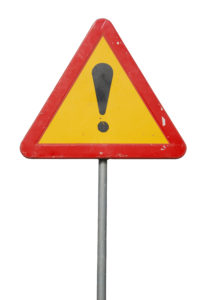Quick links, bringing you great articles on writing from all over the web.
One great and often overlooked marketing tool is the permafree ebook, especially for series. You can find a great post and podcast by Shelly Hitz and Jennifer Waddle that will help you utilize this great tool. Check it out!
~ * ~
The Power of a Permafree Book with Jennifer Waddle
What is a permafree book and how can it help you in your marketing?
In today’s training, Jennifer Waddle will be joining us to show us how permafree book has helped her succeed in marketing her books.
 The Power of PermaFree Book
The Power of PermaFree Book
SHELLEY: Welcome to Author Audience Academy. Today I’m rolling out the red carpet and inviting you into my community to show you behind the scenes look at what’s working for authors like you.
In this episode, I want to position the spotlight on one of my members, Jennifer Waddle. Welcome, Jennifer.
Jennifer: Thank you, Shelley. It’s great to be here.
Shelley: Yes! I’m so excited to have you share on today’s episode. Before we dive in I want to just share a brief bio about you.
Jennifer Waddle is an author, speaker, and contributor who write books for women in the trenches of life. Her goal is to help Christian women face issues that stand in the way of who they were created to be. I love that!
She’s also a children’s book author of a brand new series called “A Day in the Life of a Little Kid”. This book is available on Amazon. Jennifer resides with her family near the foothills of Cheyenne Mountain. And you live here in Colorado Springs, right where I am as well! We’ve attended the same church!
You can connect with her at JenniferWaddleOnline.com.
So for this week’s center stage spotlight training, I’m going to have Jennifer share a specific success strategy. I’m excited to learn from each other on being able to accomplish your goals as an author. And we will be sharing some specific strategies that have worked for Jennifer.
Read the full post on Shelly Hitz
~ * ~
If you liked this article, please share. If you have suggestions for further articles, articles you would like to submit, or just general comments, please contact me at paula@publetariat.com or leave a message below.
Save
Save

 Okay, so your single book story jumped to an idea for a nifty book series but … now what?
Okay, so your single book story jumped to an idea for a nifty book series but … now what?
 By Gabriela Pereira
By Gabriela Pereira As some folks know, I spent my misguided youth—all right, all right, my misguided middle age—as a copywriter. Which means that writing blurbs for my books was a piece of cake, right?
As some folks know, I spent my misguided youth—all right, all right, my misguided middle age—as a copywriter. Which means that writing blurbs for my books was a piece of cake, right? The ultimate decision-maker at a publishing house in whether to offer a contract has changed over the past several years. Having done my share of presentations at publishing committees, I soon learned that anyone can scuttle a project. All he or she needs to do is vociferously offer negative opinions about it. By questioning the feasibility of making money on the book (which is the bottomline), that person knows what the outcome of the discussion will be. The tide will turn against the project. But one individual on the committee has the power to sway others to his or her opinion more effectively than anyone else.
The ultimate decision-maker at a publishing house in whether to offer a contract has changed over the past several years. Having done my share of presentations at publishing committees, I soon learned that anyone can scuttle a project. All he or she needs to do is vociferously offer negative opinions about it. By questioning the feasibility of making money on the book (which is the bottomline), that person knows what the outcome of the discussion will be. The tide will turn against the project. But one individual on the committee has the power to sway others to his or her opinion more effectively than anyone else.
 So I find a lovely-looking review blog. The posts are thoughtful, fair and seriously considered. I look up the review policy and … it says ‘no self-published books’.
So I find a lovely-looking review blog. The posts are thoughtful, fair and seriously considered. I look up the review policy and … it says ‘no self-published books’. As a literary agent in major trade publishing at the Trident Media Group literary agency, I often have to explain the elements of a good query letter to new clients. This article is intended as a description of what goes into a good query letter, for new authors unfamiliar with what literary agents and editors are looking for in a query letter intended the book-publishing world. For a writer who might be currently querying literary agents, or even contemplating that process, this might be interesting reading. Considering the high rejection rate in the book publishing industry for writers trying to become debut authors, this article will hopefully be enlightening for the countless writers who are experiencing rejection due to a poorly-constructed query letter.
As a literary agent in major trade publishing at the Trident Media Group literary agency, I often have to explain the elements of a good query letter to new clients. This article is intended as a description of what goes into a good query letter, for new authors unfamiliar with what literary agents and editors are looking for in a query letter intended the book-publishing world. For a writer who might be currently querying literary agents, or even contemplating that process, this might be interesting reading. Considering the high rejection rate in the book publishing industry for writers trying to become debut authors, this article will hopefully be enlightening for the countless writers who are experiencing rejection due to a poorly-constructed query letter. When I was first signing a book contract in 2008, I remember that the industry generally scoffed at writers worried about copyright issues. Some writers wondered if they should register a copyright on their manuscripts before submitting them to agents and publishers. There was even a line of thinking that authors could simply mail their manuscripts to themselves to acquire a ‘poor man’s copyright’ through the postal service.
When I was first signing a book contract in 2008, I remember that the industry generally scoffed at writers worried about copyright issues. Some writers wondered if they should register a copyright on their manuscripts before submitting them to agents and publishers. There was even a line of thinking that authors could simply mail their manuscripts to themselves to acquire a ‘poor man’s copyright’ through the postal service.
 Way, way back in September of 2013 I wrote
Way, way back in September of 2013 I wrote  Greetings from the road! I’m out on book tour promoting
Greetings from the road! I’m out on book tour promoting  No matter how great a book’s cover and blurb, one thing can stop me from buying yet another ebook for my Kindle: an author bio on the buy page that screams “amateur.”
No matter how great a book’s cover and blurb, one thing can stop me from buying yet another ebook for my Kindle: an author bio on the buy page that screams “amateur.” I’ve been asked by writers and others if I’d ever query traditional publishers again.
I’ve been asked by writers and others if I’d ever query traditional publishers again. What is the secret of your success?
What is the secret of your success? This guest post is by Kristen Harnisch. Harnisch is the award-winning author of
This guest post is by Kristen Harnisch. Harnisch is the award-winning author of